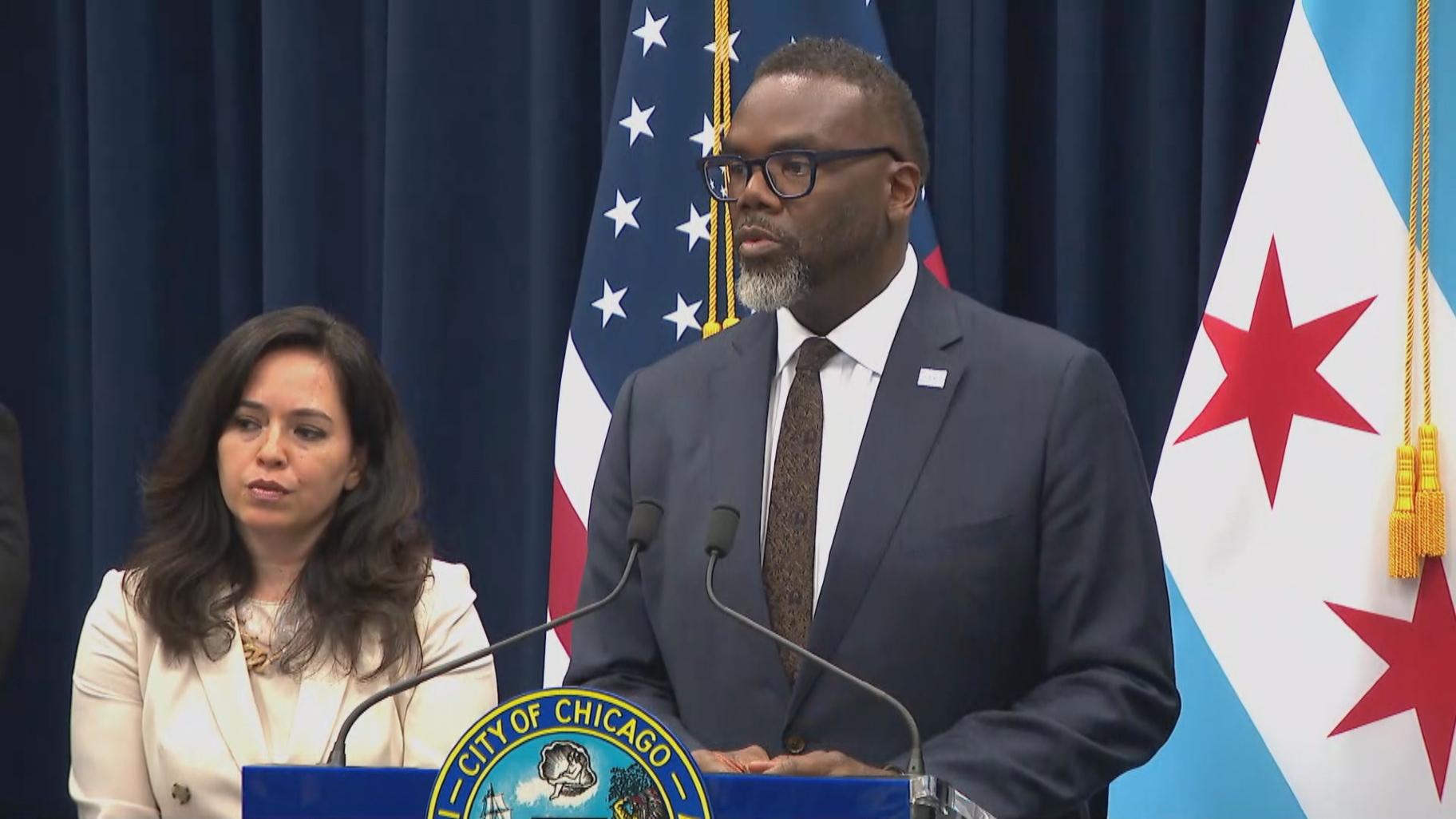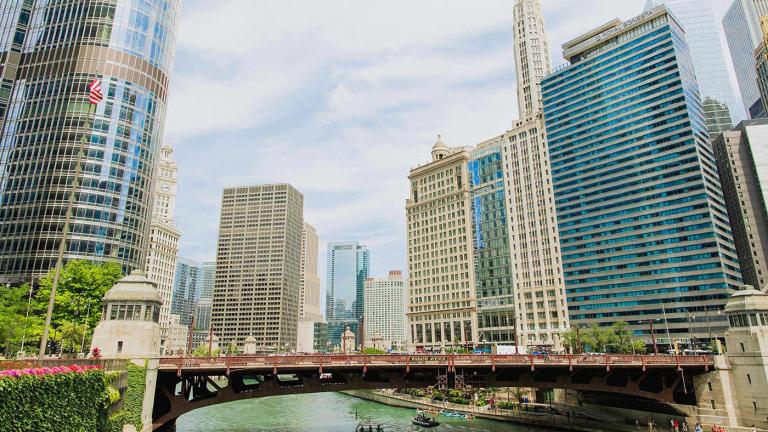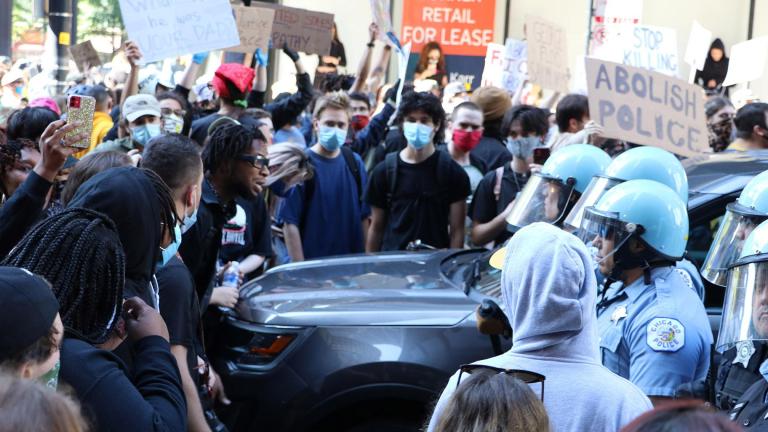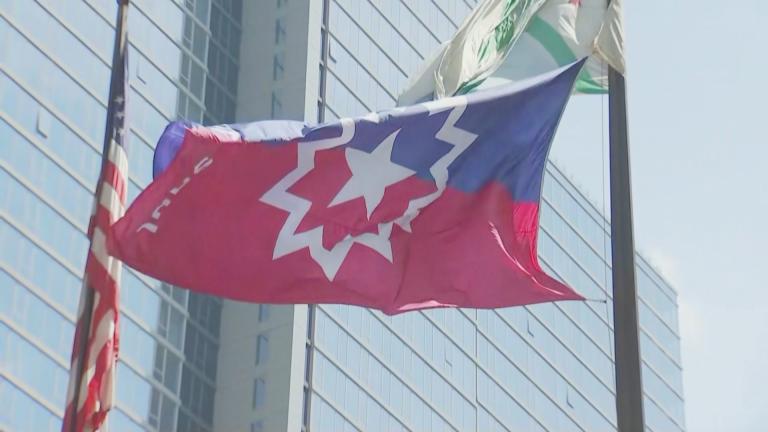 Mayor Brandon Johnson speaks to the news media on June 12, 2024. (WTTW News)
Mayor Brandon Johnson speaks to the news media on June 12, 2024. (WTTW News)
Mayor Brandon Johnson on Wednesday defended his decision to begin evicting migrant families with school-age children from city shelters, even as more than half of adults had nowhere else to go when they were asked to leave.
City officials began enforcing a 60-day limit on shelter stays for most adults in mid-March, pledging to redouble efforts to help them live independently after many arrived on buses paid for by Texas Gov. Greg Abbott.
Approximately 121 people who are members of families are scheduled to be asked to leave city shelters between Tuesday and June 18, officials told WTTW News.
Johnson has repeatedly promised Chicago will remain a welcoming city for migrants, even as officials struggle to house, feed and care for the more than 43,300 people who have made their way to Chicago from the southern border.
The decision to ask families who have yet to secure permanent housing to leave the city’s shelters does not betray that promise, Johnson said.
“We are still living up to our values,” Johnson said. “We are providing care in a way that nowhere else in the country you’re seeing.”
The mayor renewed his call for federal officials to shoulder more of the cost of caring for the migrants, and blasted congressional Republicans for failing to pass a bill endorsed by President Joe Biden, a Democrat like Johnson.
Everyone living in a city shelter will “receive case management and wraparound services to help them on their journey to independence,” according to Brandie Knazze, commissioner of Chicago’s Department of Family and Support Services. She added that meetings about migrants’ plans to leave shelters must take place 45 days before they are asked to leave, and then again 21 days before their eviction date. Eviction notices are delivered 10 days before people will be asked to leave and then again three days before the eviction date.
Individuals living in city shelters can apply for exemptions from the 60-day limit if they are awaiting benefits from another government agency, are pregnant or are caring for an infant, officials said. Those who are under a doctor’s care, are facing threats of violence or were recently bereaved can also apply to stay, officials said.
Migrants who have nowhere else to go can return to the designated “landing zone” for buses from Texas at Polk and Desplaines streets in the West Loop, reapply for shelter and be sent to another city facility.
In all, 966 migrants have been evicted from the city’s shelters, according to city data. More than 55% continue to live in city shelters, officials said.
In all, Chicago taxpayers spent $168 million between August 2022 and June 10 to care for approximately 43,300 migrants. Another $232.5 million in grant funds from the state and federal governments were used to care for the migrants, according to city records.
All of the migrants are in the country legally after requesting asylum and most were sent to Chicago by Abbott, the Republican Texas governor, as part of an effort to damage Biden’s chances for reelection and divide Democratic voters.
A new policy implemented by Biden could curtail the number of migrants allowed to enter the country after requesting asylum and could reduce the number of people making their way to Chicago and New York, easing pressure on Johnson and New York City Mayor Eric Adams.
The number of migrants arriving in Chicago has risen 4.8% in the past month, according to city officials.
Fewer than 6,800 people were living in 17 city facilities as of Wednesday, a 13% drop since May 12, according to city data.
Contact Heather Cherone: @HeatherCherone | (773) 569-1863 | [email protected]








